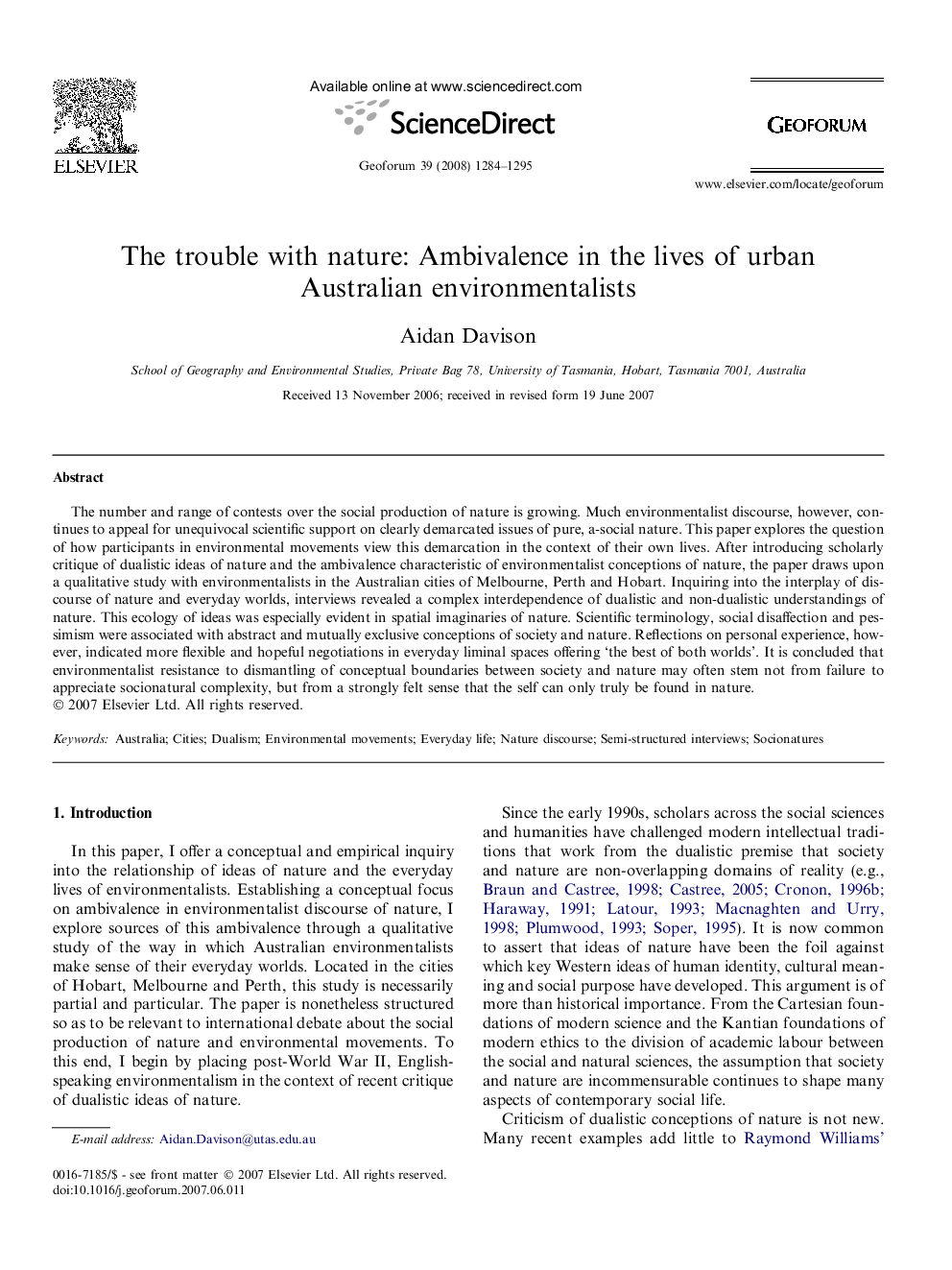| Article ID | Journal | Published Year | Pages | File Type |
|---|---|---|---|---|
| 5075123 | Geoforum | 2008 | 12 Pages |
Abstract
The number and range of contests over the social production of nature is growing. Much environmentalist discourse, however, continues to appeal for unequivocal scientific support on clearly demarcated issues of pure, a-social nature. This paper explores the question of how participants in environmental movements view this demarcation in the context of their own lives. After introducing scholarly critique of dualistic ideas of nature and the ambivalence characteristic of environmentalist conceptions of nature, the paper draws upon a qualitative study with environmentalists in the Australian cities of Melbourne, Perth and Hobart. Inquiring into the interplay of discourse of nature and everyday worlds, interviews revealed a complex interdependence of dualistic and non-dualistic understandings of nature. This ecology of ideas was especially evident in spatial imaginaries of nature. Scientific terminology, social disaffection and pessimism were associated with abstract and mutually exclusive conceptions of society and nature. Reflections on personal experience, however, indicated more flexible and hopeful negotiations in everyday liminal spaces offering 'the best of both worlds'. It is concluded that environmentalist resistance to dismantling of conceptual boundaries between society and nature may often stem not from failure to appreciate socionatural complexity, but from a strongly felt sense that the self can only truly be found in nature.
Related Topics
Social Sciences and Humanities
Economics, Econometrics and Finance
Economics and Econometrics
Authors
Aidan Davison,
